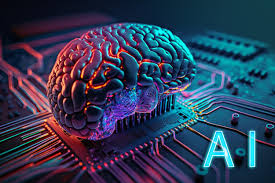
Artificial Intelligence: Shaping the Future of IT
Introduction to AI in IT
Artificial Intelligence (AI) is revolutionizing the IT industry by automating tasks, improving decision-making, and enhancing customer experiences. AI technologies, such as machine learning, natural language processing (NLP), and computer vision, have enabled businesses to analyze vast amounts of data, predict future trends, and optimize operations. In the IT sector, AI is being used to automate routine tasks such as monitoring networks, diagnosing system errors, and even writing code. This allows IT professionals to focus on more strategic initiatives, leading to greater efficiency and productivity. AI has also paved the way for innovations such as chatbots, virtual assistants, and autonomous systems, which are transforming the way businesses interact with their customers.
AI Applications in IT
AI has a wide range of applications in the IT industry, from automating customer support with chatbots to enhancing cybersecurity by detecting anomalies in network traffic. One of the most significant applications of AI is in data analysis. Machine learning algorithms can sift through massive datasets to uncover patterns, trends, and insights that would be impossible for humans to detect manually. This capability is invaluable for IT companies that rely on data to drive decision-making and innovation. AI is also being used to improve software development processes by automating tasks such as code generation, testing, and debugging. This not only speeds up development but also reduces the likelihood of errors, resulting in more reliable software.
The Impact of AI on Employment
The rise of AI has sparked concerns about its impact on employment, particularly in the IT industry. While AI can automate many routine tasks, it also creates new opportunities for skilled professionals. As AI technology continues to evolve, there will be an increasing demand for AI specialists, data scientists, and machine learning engineers. These roles require a deep understanding of both AI technologies and the ethical considerations surrounding their use. Additionally, AI can enhance the work of IT professionals by handling mundane tasks, allowing them to focus on more creative and strategic initiatives. Rather than replacing jobs, AI has the potential to augment human capabilities and drive innovation in the IT sector.
Ethical Considerations in AI
As AI becomes more integrated into our daily lives, ethical considerations surrounding its use are becoming increasingly important. One of the key concerns is bias in AI algorithms. If an AI system is trained on biased data, it can perpetuate and even amplify existing inequalities. This is particularly concerning in applications such as hiring, lending, and law enforcement, where biased decisions can have significant real-world consequences. Additionally, there are concerns about the transparency and accountability of AI systems. As AI becomes more complex, it can be difficult to understand how decisions are made, leading to a lack of accountability. IT companies must take a proactive approach to address these ethical challenges by ensuring their AI systems are transparent, fair, and accountable.
Future Trends in AI and IT
The future of AI in IT looks incredibly promising, with advancements in technologies such as natural language processing, computer vision, and reinforcement learning. These technologies will enable more sophisticated AI applications, from autonomous vehicles to personalized medicine. Additionally, AI is expected to play a key role in the development of quantum computing, which has the potential to revolutionize the IT industry by solving complex problems that are currently beyond the capabilities of classical computers. As AI continues to evolve, IT companies must stay ahead of the curve by investing in AI research and development, ensuring they can capitalize on the transformative potential of this technology.
/ Ax Studios
Ax Studios is a website designing and development company, with experienced creative designers and efficient developers have brilliant ideas that help our clients achieve their business objectives and promote themselves in the digital world.